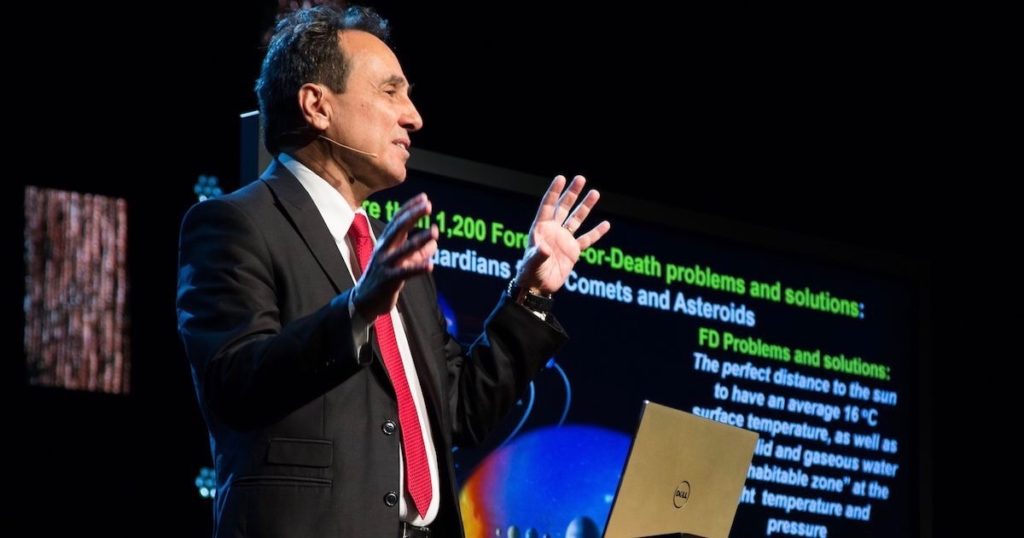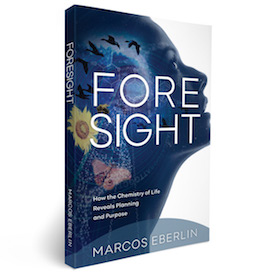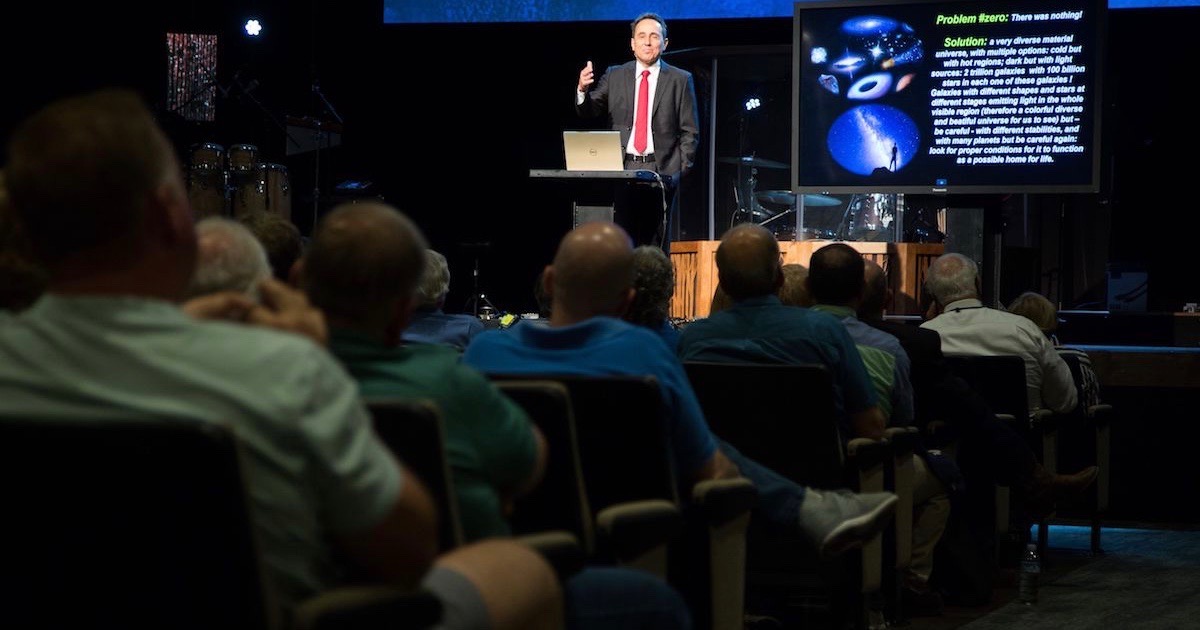 Faith & Science
Faith & Science
 Intelligent Design
Intelligent Design
On Book Tour, Marcos Eberlin Sparks Thought About the ID Movement

World-renowned chemist Marcos Eberlin, author of the new book Foresight: How the Chemistry of Life Reveals Planning and Purpose, is currently on a book tour, with events in Dallas, Southern California, Colorado, and Seattle, and elsewhere. I heard his insightful and joyful presentation last week to the Southern California Chapter of the Science & Culture Network, and his remarks sparked thoughts for me.
During the Q&A, an attendee asked why intelligent design proponents don’t just come out and explicitly say the designer is God. It’s a question I’ve heard from students I’ve taught at Biola University. A couple of years ago I wrote here about why the ID movement, in not identifying the designer, isn’t being coy. I wanted to revisit this topic.
As Far as It Goes

In his answer to the questioner, Eberlin said that there is a fundamental difference between what he can say from his experience as a scientist, and what he can say as a Christian.
As a chemist, he sees clear design in the universe and in nature. But that is as far as it goes. His scientific claim is that when one looks at the thousands of engineering problems, including problems of “causal circularity,” that must have been solved in the course of life’s evolution, it simply isn’t possible that it all could have been done without foresight. That is to say, without design. As a Christian, on the other hand, Eberlin identifies the source of design with God. He believes ID proponents should be open about their own personal views. He completely rejects the notion that a Christian’s belief, or anyone’s, in any way invalidates his or her scientific position. ID should be evaluated based on its scientific truth claims alone.
The questioner also asked Eberlin how the designer created. Was all of the capability “built in” to the universe from the beginning, or did the designer “step in” at certain stages to move creation along, culminating in sentient human beings? Eberlin’s reply was that he takes the view of Augustine, who believed God created the universe with all of the capability needed to bring about eventual life on Earth with no further intervention. His answer reminded me of the wide diversity of thought in the ID movement.
A Range of Positions
You have, for example, those like Eberlin who hold the Augustinian view. You have others who believe the designer infused biological information at various epochs even as they fully accept common descent. Others have scientific reasons for doubting common descent, while believing God is active in the world, continually upholding his creation. Indeed, that was Sir Isaac Newton’s belief. You have those who adopt what might be called an Aristotelian outlook. That is the perspective of biologist Michael Denton. Others adopt a still more skeptical attitude, including mathematician David Berlinski, concentrating their intellectual fire on Darwinian theory and not formally endorsing intelligent design. At Evolution News, James Barham, a self-described atheist, has sketched his own fascinating journey toward a view that “living things are best understood as intelligent agents — not machines — and that we are missing something fundamental about the physical underpinnings of intelligent agency.” Across the board, the thinking is subtle and, in simplifying, I hope I have not done violence to anyone’s position.

A Big Tent
What’s clear is that ID provides a “big tent,” with space for many who are convinced that Darwinian evolution cannot produce ingenious novelties in life, and that design, whatever its exact nature, provides the best explanation for the cosmos and the natural world. In not identifying the source of design, ID both recognizes the limits of the scientific evidence and respects the diversity of opinions among its proponents. It isn’t being “coy.”
By contrast, the most hardened in the Darwinian camp are trapped in a self-imposed dogma, unable and unwilling to consider other possibilities. It is a dogma they uphold ruthlessly, promising to destroy the careers of any research scientist or other academic who does not toe the party line. It’s hard to see how Newton, Kepler, Galileo, Copernicus, Pascal, or Boyle would be welcome in today’s scientific establishment.
Interestingly, ID proponents are open to Darwinian evolution. But as Michael Behe has explained in The Edge of Evolution and Darwin Devolves, Darwin’s undirected process has sharp limits to what it can do.
Intelligent design follows the evidence where it leads, with no coercion as to what the truth must be. If Darwinian evolution could deliver on what it asserts, or if evolution’s “edge” were less limited, then I believe ID proponents would be happy to change their position. But with literally thousands of unanswered questions, questions that appear to be best answered by intelligent foresight as Eberlin discusses in his book, the design view appears to be the most rational.
Photo: Marcos Eberlin speaking in Dallas, TX, this past Sunday night, by Chris Morgan.
